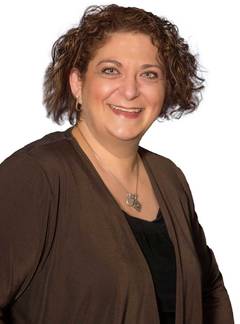THE SECOND PASSOVER DURING OF COVID-19
The Second Passover During Covid-19
By Rabbi Jennifer Weiner, Interim Senior Rabbi
 This year like last year, Passover feels different. We may clean our houses in preparation like in previous years. We may make our family’s favorite Passover recipes. Yet, for the second year in a row, we are not able to gather for a Seder in person. The biggest difference is that now we are seasoned pros at virtual visits.
This year like last year, Passover feels different. We may clean our houses in preparation like in previous years. We may make our family’s favorite Passover recipes. Yet, for the second year in a row, we are not able to gather for a Seder in person. The biggest difference is that now we are seasoned pros at virtual visits.
It really hit me that last year we said, “Next year in Jerusalem! Next year in person!” Once again, though, we will join together online for our seders this year. Last year as Passover approached, most of the Jewish world scrambled to figure out how to create a seder on ZOOM. This year at Har Sinai-Oheb Shalom Congregation, we will have a live seder on the first night and a short recorded seder that may be shared at any time for those watching and joining in together online. We learned a lot of lessons last year and are applying those lessons we to this year’s offerings.
Lessons learned and applied:
- Seder is about family and community.
- Short and succinct is better. We will highlight what aspects of the seder most meaningful as relayed to us. When we are back in-person, we may add back in what we “missed” from this year.
- Creating community online is of utmost importance. Creating opportunities for inclusion of all and involvement of members is our focus.
- We will highlight the positive aspects of celebrating together online. When else are we able to have seder with loved ones living all around the world?!
- Seder is not about perfection. Rather, Passover is the time to recall our collective community’s history and to remember that there are still individuals needing to be freed from their experience of bondage and slavery.
Celebrating Passover again online in a way is very much like what the Children of Israel experienced in the desert after leaving Egypt. As they crossed through the Reed Sea, the community was led in song by Miriam. They sang MiChamocha to thank God for their deliverance from slavery. Shortly after that period of euphoria, the Israelites began to grumble and complain. They asked Moses why they had been brought out of slavery only to die in the desert. In their collective memory, Egypt had been much better. Slavery no longer seemed so harsh. Then the community was able to start looking towards the Promised Land and a new hope emerged. Along the way, though, there were many times that the community lost sight of its goal of making it to the Promised Land. They lost their way and rebelled. They, too, in a matter of speaking were cut off from the life they had known and had become accustomed to during slavery. Yet, they had their moment of redemption and freedom.
We, too, will have that moment of freedom from quarantine. Life will resume in one way or another. It will not be the same as before. Some will have survived COVID-19 while others will have succumbed to it. We, as a community, will be different. Passover will take on a different meaning for the greater Jewish community. Not only will the Exodus from Egypt be recalled but also the time of quarantine, a confinement in our own time.
In years to come, our children may very well recount to their children the years that Passover seders were ZOOMed instead of in-person. They will tell their children that on those nights a new means of celebrating was discovered, one in which we were both near and far away from each other. It may be the beginning of a new way of including family members and friends unable to join us in person but still joining in through technology. Thus, as we gather to celebrate Passover at HSOSC this year, we will do so as a community. We will also be wishing each other, “Next year in Jerusalem! Next year in-person together!”
Chag Kasher Pesach…A Happy and Healthy Passover!
Fri, June 13 2025
17 Sivan 5785
This Week's Yahrzeits
Upcoming Events
-
Friday ,
JunJune 13 , 2025The Women's Club Shabbat with Pre-Service Oneg Shabbat Reception
Friday, Jun 13th 5:30p to 7:15p
-
Friday ,
JunJune 13 , 2025Shabbat Services (In-Person, On Zoom and via Facebook Live) Chapel
Friday, Jun 13th 6:15p to 7:30p
-
Sunday ,
JunJune 15 , 2025Mazer Morning Minyan
Sunday, Jun 15th 8:30a to 9:00a
-
Monday ,
JunJune 16 , 2025Mazer Morning Minyan
Monday, Jun 16th 8:00a to 8:30a
-
Monday ,
JunJune 16 , 2025SPICE: Beer, Bread, and Brothels of Baltimore
Monday, Jun 16th 10:30a to 12:00p
-
Tuesday ,
JunJune 17 , 2025Mazer Morning Minyan
Tuesday, Jun 17th 8:00a to 8:30a
-
Wednesday ,
JunJune 18 , 2025Mazer Morning Minyan
Wednesday, Jun 18th 8:00a to 8:30a
-
Wednesday ,
JunJune 18 , 2025SPICE: It is Not What You Think it is! Or Maybe it is? Intro to Jewish Mysticism: Kabbalah and Other Practices of Divine Sex
Wednesday, Jun 18th 10:30a to 12:00p
-
Wednesday ,
JunJune 18 , 2025Women's Club end of year Meeting
Wednesday, Jun 18th 6:00p to 8:00p
-
Thursday ,
JunJune 19 , 2025HSOSC Offices and Learning Ladder Closed
Thursday, Jun 19th (All day)
Update this content.


